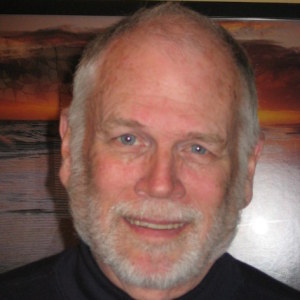Authored by Jim Smith, M. S.
In this presentation I did a brief review of the extensive literature on self-deception in the evolutionary biology literature, including evolutionary biologist Robert Triver’s theory of self-deception. I then discussed self-deception from the perspective of Bowen’s idea of the pseudo-self, using examples from my effort to define a self in my own family.
“Deceitful behavior has a long and storied history in the evolution of social life, and the more sophisticated the animal, it seems, the more commonplace the con games, the more cunning their contours. In a comparative survey of primate behavior, Richard Byrne and Nadia Corp of the University of St. Andrews in Scotland found a direct relationship between sneakiness and brain size. The larger the average volume of a primate species’ neocortex — the newest, “highest” region of the brain — the greater the chance that the monkey or ape would pull a stunt like this one described in The New Scientist: a young baboon being chased by an enraged mother intent on punishment suddenly stopped in mid-pursuit, stood up and began scanning the horizon intently, an act that conveniently distracted the entire baboon troop into preparing for nonexistent intruders.”(1)
How one lives day-to-day is the most accurate portrayal of one’s level of differentiation of self. We consciously and pre-consciously apprehend this. Our actions speak louder than our words. To the degree we live in deception, bad faith, duplicity, inauthenticity, pretending to be more or less, or equally as important, more or less, or equally knowledgeable, more or less, or equally as handsome, beautiful, talented, etc., etc., this is directly and indirectly perceived to some degree by self and others.
I have been working at defining a self in my own family by design for 40+ years. I am aware of everyday progress and slippage. Over the long haul, I see a slight bit of forward movement. There are different challenges in different family and work systems. I strive to be more objective, and less pretend, to define and stay on my own trajectory and let others do the same, while trying to remain in effective contact with them, to make decisions based in a careful consideration of facts. In other words, I try to be skeptical about how I am doing. Some who live and work with me are undoubtedly more objective than I am. I say probably because I’m sure I “fool all of the people some of the time,” with or without consciously trying, just as I fool myself at least that much or more, with or without trying. Some have the courage and objectivity to call me on it. Some call me on it out of their own reactivity. How much courage and objectivity do I have in calling myself or others to task? How often is this anxiety driven?
Initial goals in this effort in 1975 were to: 1) Develop person to person relationships with each parent – apart from the parental “we-ness”; 2) Become less reactive to father’s unregulated use of alcohol; and, 3) Become less reactive to mother’s long distance phone calls for help from her son, ”the psychologist,” with her “alcoholic” husband.
These early efforts in my own family allowed beginning steps toward: 1) An embryonic awareness of differences between conventional psychological theory and Bowen family systems theory; 2) A beginning effort at better regulating myself in personal and professional relationships; and, 3) An early appreciation for how symptoms function in family relationships, e.g. grasping how a depression, a manic-depression, a cancer, unregulated use of alcohol, misbehavior, marital problems or whatever the “symptom du jour” is in any nuclear family, can be usefully viewed as responses to perceived threats in relationships, stabilizing overall family equilibrium, while perhaps doing in an individual or at least getting him off track.
Subsequent goals included : 1) Understanding emotional triangles in my parents’ generation, how they connect to past generations of my family, to the family in which I grew up and the family I started; 2) Climbing my family tree, critically and skeptically identifying facts (who, what, when, where and how) of family functioning for as many nuclear families in my extended family as possible; 3)Maintaining viable contact with every individual in my family tree whom I have known; and, 4) Identifying, connecting with, and developing and maintaining viable contact with as many other people in my family whom I have not known as possible.
Results of this ongoing effort include: 1) Comprehending past triangles has permitted me to predict current and future triangles, and comprehending current and future triangles has allowed me to predict past triangles; 2) This cognizance is both voluntary (reflective) and involuntary (pre-reflective), as is the process of becoming aware of connections between relationship patterns in past and current generations of a family; 3) The goal of skeptically comprehending the functioning of each and every nuclear family in my extended family has resulted in a better appreciation of my extended family as a whole and of all families; 4) This has led to a gradually more objective view of past and present family functioning and my personal past and present functioning. The opacity between facts, functional facts, and guesswork, opinion or family lore becomes more clear in this process; 5) The connection between emotional triangles and facts of family functioning in past generations and triangles and defining a self in the current generation becomes more clear; and, 6) Over time, there has been a gradually more objective and less pretend, pseudo self view of self.
(1) http://www.nytimes.com/2008/12/23/science/23angi.html?_r=0
James B. Smith, MS
Western Pennsylvania Family Center
Pittsburgh, PA 15206
412-370-3880
jbspitt@aol.com




Leave a Reply